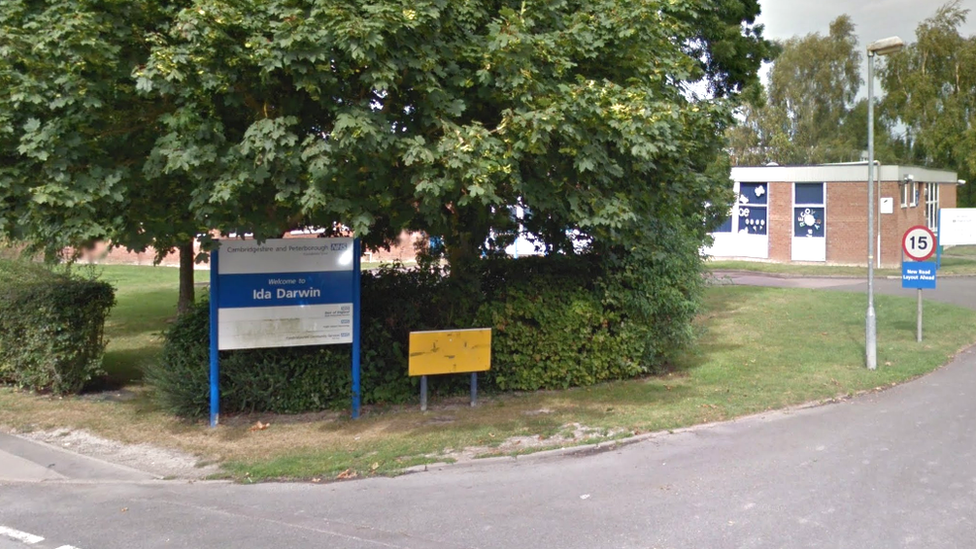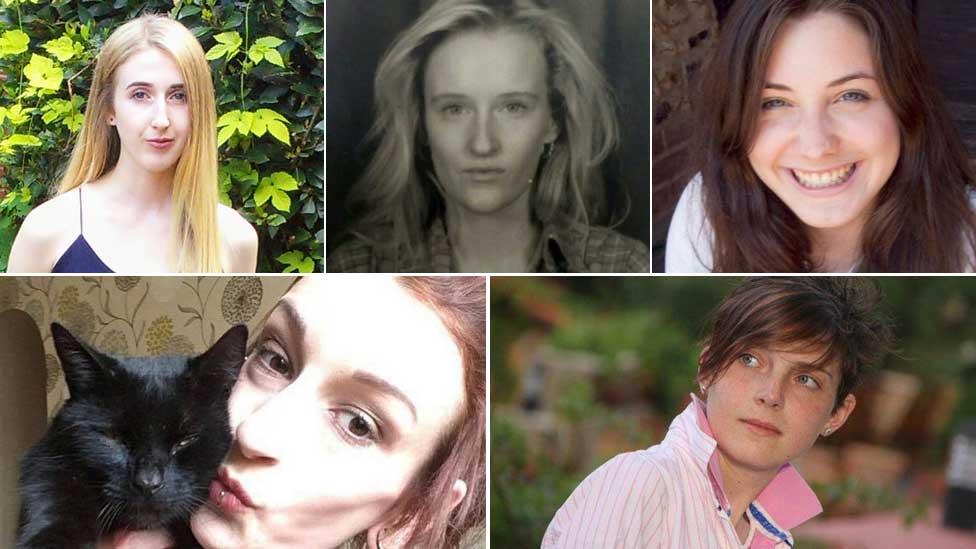Eating disorder unit closes again due to staff shortages
- Published

Simon Brown with his daughter Emma, who was a patient at the Phoenix Centre as a teenager
An inpatient eating disorder unit has been temporarily closed because of staff shortages.
The Phoenix Centre, in Fulbourn near Cambridge, is a specialist regional unit that treats 13 to 18-year-olds with severe eating disorders.
Five patients have been transferred to "alternative accommodation" to continue their treatment, it said.
The facility added it was "committed to resuming services at the unit as soon as it is practical and safe to do so".
The unit based at the Ida Darwin Hospital, is a regional service, commissioned by several local mental health trusts.
It is not the first time it has been forced to close. The unit was shut for five months between May and September 2018, again due to staffing issues.
A report discussed at a meeting of directors of the Cambridgeshire and Peterborough NHS Foundation Trust (CPFT) said it was working to "establish safe staffing levels" and was "exploring alternative options" for providing the service, "with a plan being prepared for the re-opening of the unit".
But an earlier version of the same board papers, which were removed from the trust's website, acknowledged the ward had "hit a crisis point".

The Phoenix Centre is based in the Ida Darwin Hospital in Fulbourn, Cambridge
There are no specific figures to show vacancies in eating disorder services, but NHS England data shows, external that in March this year there were 1,963 clinical vacancies across all mental health services in the East of England, a rate of 9.9%.
Sean Horstead, the area coroner for Cambridgeshire and Peterborough, wrote a "prevention of future deaths" report, external in March 2021 following the deaths of five women between 2012 and 2018 who had suffered from from anorexia nervosa, and all used services run by CPFT.
Amongst other concerns he noted a "continuing and serious shortage of eating disorder specialists across the country, with many trusts finding it difficult to fill vacancies."
Simon Brown, whose daughter Emma attended the Phoenix Centre and was one of the women who died, described it as a "very special place".
He is now a trustee of Personalised Eating Disorder Support (PEDS), a local charity run by two nurses who previously worked at the unit.
Mr Brown said the East of England had better staffing levels than other parts of the country, but he was concerned that eating disorders were not a recognised medical specialism.
"This is such a tough area to work in with extremely challenging patients and we need the best people," he said.
"The risk is that staff get burnt out and under-appreciated."
He said that since the start of the pandemic, self-referrals to PEDS had risen "six-fold" and had not decreased with the end of Covid restrictions.
The national eating disorder charity BEAT said continuity of care was extremely important for these patients and that having to move to a new unit could "make recovery more difficult".
If you're worried about your own or someone else's health, you can contact BEAT, the UK's eating disorder charity, 365 days a year on 0808 801 0677 or beateatingdisorders.org.uk
Information, links and support for a variety of issues, including eating disorders and suicide and emotional distress, is available on the BBC Action Line index.

Follow East of England news on Facebook, external, Instagram, external and X, external. Got a story? Email eastofenglandnews@bbc.co.uk , externalor WhatsApp on 0800 169 1830
Related topics
- Published29 July 2021

- Published20 May 2021

- Published10 March 2021
